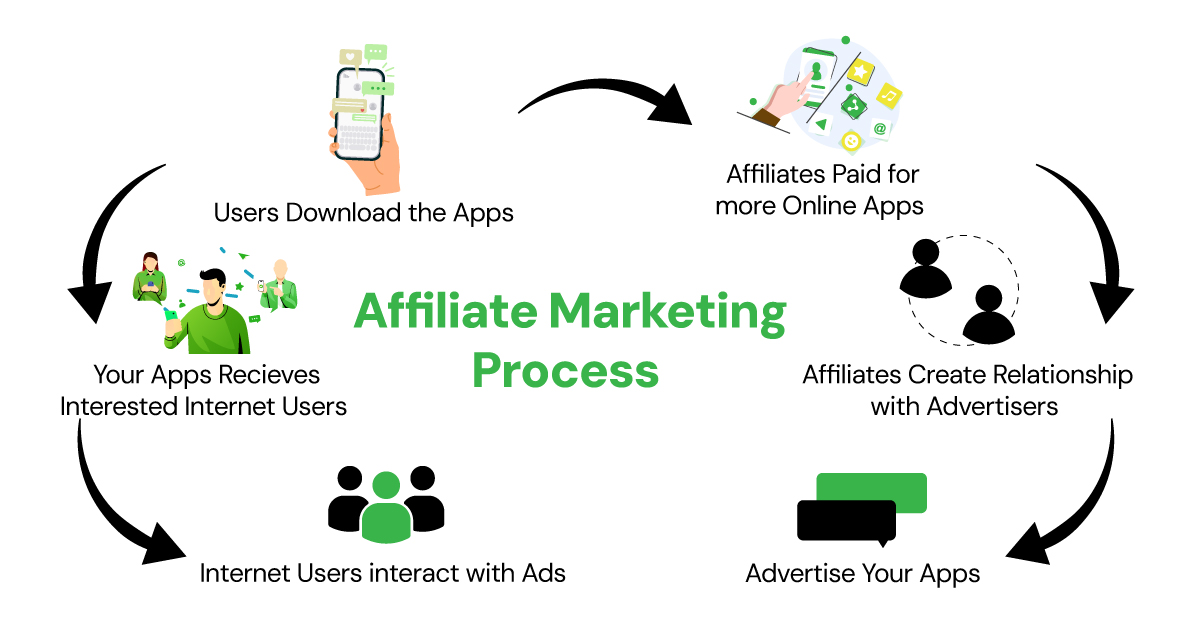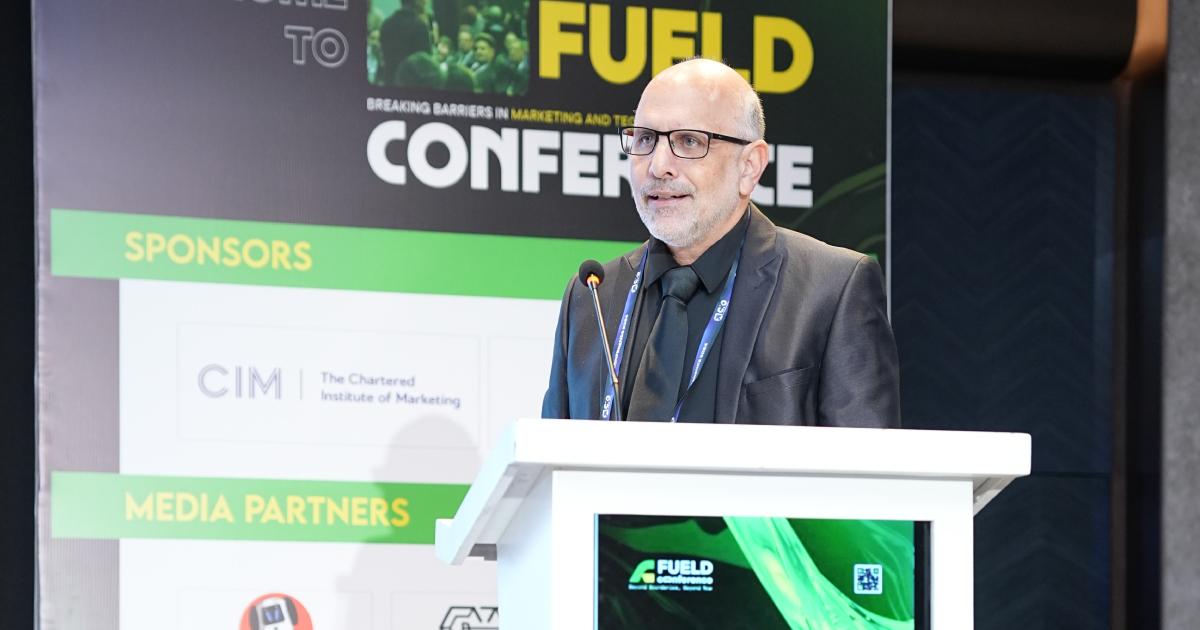Posted on : July 03, 2025

Affiliate marketing has become one of the most accessible and powerful ways to build revenue streams in today’s digital economy. Whether you’re an entrepreneur, a startup founder, or a professional looking to expand your income channels, understanding affiliate marketing can unlock tremendous opportunities, especially in fast-evolving industries and marketplaces highlighted at FUELD.
As the FUELD Conference gears up for its 2025 and 2026 editions, with themes centered on innovation, future tech, and global markets, it’s the perfect time to get familiar with affiliate marketing and how it can complement your business or personal brand. Let our growth marketing and tech summit take you through everything you need to know about affiliate marketing in this blog!
What Is Affiliate Marketing?
At its core, affiliate marketing is a performance-based marketing strategy where individuals or companies (affiliates) promote a product or service offered by another business (merchant) and earn a commission for each sale, lead, or action generated through their unique referral link.
Think of it like being a digital ambassador: you leverage your network, platform, or audience to recommend products or services you believe in, and in return, you get rewarded for driving measurable results. As a key tactic often discussed in growth marketing and tech summit circles, affiliate marketing continues to gain traction for its ability to drive scalable results with minimal upfront investment.
Why Affiliate Marketing Matters Today
Affiliate marketing has grown into a cornerstone of digital commerce, driving billions in sales worldwide. Its accessibility and effectiveness make it an ideal starting point for entrepreneurs, creatives, and professionals looking to diversify income streams.
From bloggers to YouTubers, influencers to startup founders, many are tapping into affiliate marketing’s potential to build passive income and scale their brands with minimal upfront costs. Here are some benefits of adopting affiliate marketing outlined by experts at our tech and marketing conference.
Low Barrier To Entry
Unlike launching your product, affiliate marketing requires little to no upfront investment. You don’t need to create or stock inventory, handle customer service, or manage shipping — you focus on marketing and referrals.
Scalability
Your earning potential scales with your effort and reach. With the right strategies, an affiliate marketer can generate passive income streams that grow exponentially over time.
Flexibility
Whether you run a blog, YouTube channel, social media page, or email list, affiliate marketing can adapt to your existing audience and content style. It’s a natural fit for digital creators and businesses alike.
Win-Win for Merchants And Affiliates
Merchants get cost-effective, targeted promotion, while affiliates earn commissions, creating a mutually beneficial ecosystem that’s booming in sectors such as tech, finance, education, and beyond.
How Does Affiliate Marketing Work?
Affiliate marketing is a straightforward but powerful strategy that allows individuals and businesses to earn passive income by promoting products or services they believe in. Whether you're a content creator, entrepreneur, or someone exploring digital monetization, understanding the mechanics of affiliate marketing is essential, especially as it's increasingly discussed at every major tech and marketing conference, such as ours.

Source: Business Of Apps
This is how affiliate marketing works:
- Join An Affiliate Program
Choose companies or products that align with your niche or interests and apply to their affiliate programs. Popular platforms include Amazon Associates, ShareASale, CJ Affiliate, and specialized SaaS or tech company programs.
- Get Your Unique Affiliate Link
Once approved, you receive a personalized tracking link. This link tracks all clicks and sales you generate.
- Promote The Product Or Service
Share your affiliate link through blog posts, social media, newsletters, videos, or paid ads. Authenticity is key — your audience should feel that your recommendation is genuine.
- Earn Commission
When someone clicks your link and completes the desired action (usually a purchase), you earn a commission. Rates vary depending on the program and product, typically ranging from 5% to 50% or more.
Getting Started With Affiliate Marketing: A Step-By-Step Guide
If you’re ready to jump in, here’s a practical roadmap to begin your affiliate marketing journey from our growth marketing and tech summit:
1. Identify Your Niche And Audience
Start by defining who you want to reach. The more specific your niche, the easier it will be to select relevant affiliate programs and tailor your content.
2. Research Affiliate Programs
Look for programs with quality products, competitive commissions, and a trustworthy reputation.
3. Create Valuable Content
Write reviews, how-to guides, unboxing videos, or success stories that genuinely help your audience.
4. Build An Online Platform
Choose a blog, YouTube, social media, or podcast — wherever your audience is most active.
5. Drive Traffic Strategically
Use SEO, social media, email campaigns, or paid ads to attract the right audience.
6. Track And Optimize Your Performance
Use tracking tools to monitor clicks, conversions, and optimize campaigns for ROI.
Common Pitfalls And How To Avoid Them
Affiliate marketing can be incredibly rewarding but also tricky if common mistakes are made.
As affiliate marketing expands, the following are key mistakes to avoid, highlighted often at our tech and marketing conference:
Choosing The Wrong Products
Only promote products that fit with your brand or that you trust. Maintain authenticity.
Overloading Content With Links
Use links intentionally and add value. Don’t just fill up content to monetize.
Ignoring Disclosure Rules
Always disclose affiliate relationships. It’s legally required and builds trust.
Neglecting Audience Engagement
Interact with your audience, answer questions, and respond to feedback.
Final Thoughts From Our Tech & Marketing Conference
Affiliate marketing isn’t just a buzzword — it’s a practical, scalable strategy. With the right products, transparency, and consistent value, you can create long-term passive income that aligns with your brand goals.
At conferences like FUELD, affiliate strategies are discussed as critical tools in modern digital growth. Whether you're just starting or seeking improvement, affiliate marketing is a key part of the digital playbook.
FAQs
1. How can attending the FUELD Conference help me succeed in affiliate marketing?
FUELD provides insights on latest affiliate trends, connects you with experts, and opens affiliate partnership opportunities.
2. Are there opportunities at FUELD to connect directly with affiliate programs or merchants?
Yes. The event includes networking and exhibits where you can meet affiliate managers, companies, and marketers.
3. How much upfront investment is required to start affiliate marketing?
Very little. Most investment is time and effort. Optional costs may include website or advertising expenses.
4. How do I choose the right affiliate programs to promote?
Choose trusted brands aligned with your content. Check reputation, terms, and commission rate before onboarding.
5. Can affiliate marketing generate passive income?
Yes, with evergreen content and long-term strategy, you can generate recurring passive income with affiliate links.










